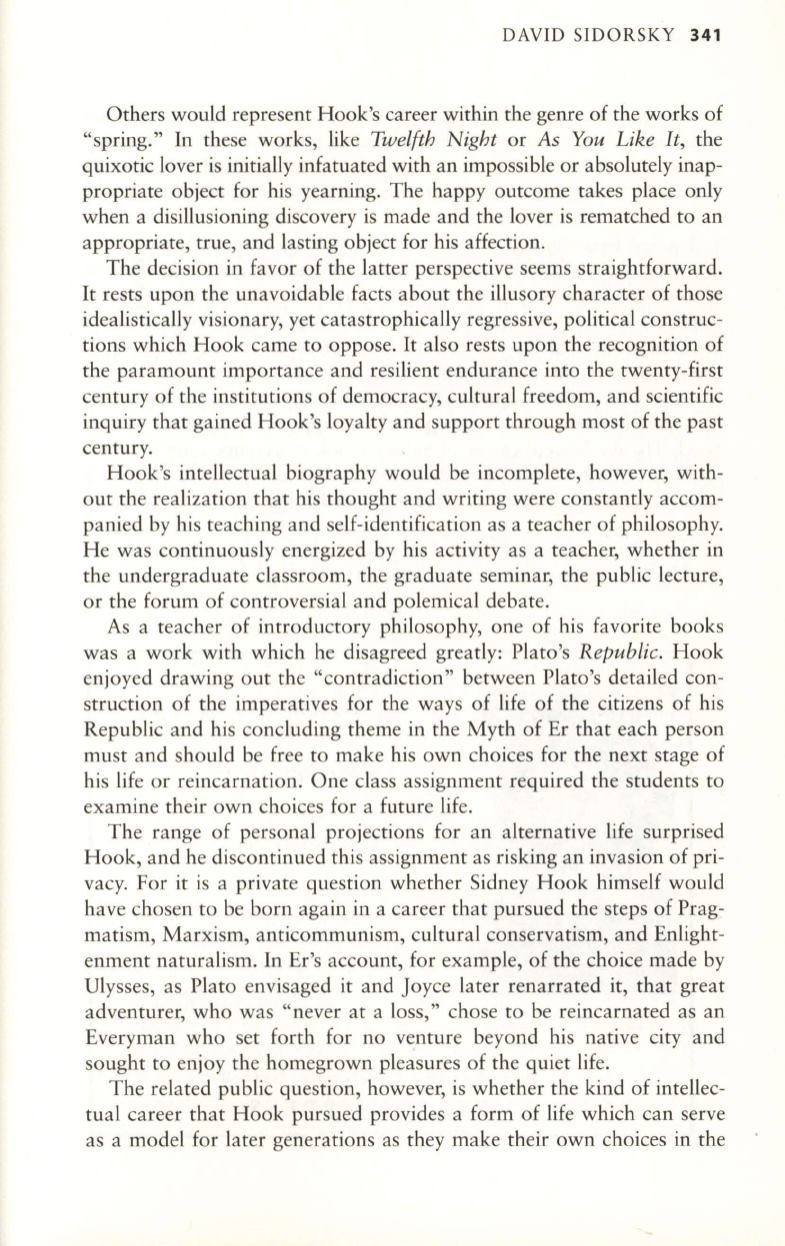
DAVID SIDORSKY
341
Others would represent Hook's career within the genre of the works of
"spring." In these works, like
Twelfth Night
or
As You Like It,
the
quixotic lover is initially infatuated with an impossible or absolutely inap–
propriate object for his yearning. The happy outcome takes place only
when a disillusioning discovery is made and the lover is rematched to an
appropriate, true, and lasting object for his affection.
The decision in favor of the latter perspective seems straightforward.
It
rests upon the unavoidable facts about the illusory character of those
idealistically visionary, yet catastrophically regressive, political construc–
tions which Hook came to oppose.
It
also rests upon the recognition of
the paramount importance and resilient endurance into the twenty-first
century of the institutions of democracy, cultural freedom, and scientific
inquiry that gained Hook's loyalty and support through most of the past
century.
Hook's intellectual biography would be incomplete, however, with–
out the realization that his thought and writing were constantly accom–
panied by his teaching and self-identification as a teacher of philosophy.
He was continuously energized by his activity as a teacher, whether in
the undergraduate classroom, the graduate seminar, the public lecture,
or the forum of controversial and polemical debate.
As a teacher of introductory philosophy, one of his favorite books
was a work with which he disagreed greatly: Plato's
Republic.
Hook
enjoyed drawing out the "contradiction" between Plato's detailed con–
struction of the imperatives for the ways of life of the citizens of his
Republic and his concluding theme in the Myth of Er that each person
must and should be free to make his own choices for the next stage of
his life or reincarnation. One class assignment required the students to
examine their own choices for a future life.
The range of personal projections for an alternative life surprised
Hook, and he discontinued this assignment as risking an invasion of pri–
vacy. For it is a private question whether Sidney Hook himself would
have chosen to be born again in a career that pursued the steps of Prag–
matism, Marxism, anticommunism, cultural conservatism, and Enlight–
enment naturalism. In Er's account, for example, of the choice made by
Ulysses, as Plato envisaged it and Joyce later renarrated it, that great
adventurer, who was "never at a loss," chose to be reincarnated as an
Everyman who set forth for no venture beyond his native city and
sought to enjoy the homegrown pleasures of the quiet life.
The related public question, however, is whether the kind of intellec–
tual career that Hook pursued provides a form of life which can serve
as a model for later generations as they make their own choices in the


